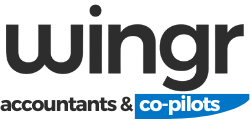All businesses are required to pay the compulsory Super Guarantee for payments to their employees. However, depending on what type of legal structure your business operates in will determine whether you are considered an employee of your business and whether you need to pay the Super Guarantee on the money you pay yourself from the business.
- Sole Trader – If you are a sole trader you cannot be an employee of the business, so the Super Guarantee does not apply to money you take out of the business. However, you can opt to make voluntary super contributions.
- Partnership – If you are a partner of the partnership in which your business operates you cannot be an employee of the business. So again, the Super Guarantee does not apply but partners may opt to make voluntary contributions.
- Trust – If your business operates in a trust structure, the trust will have to pay the Super Guarantee on your wages if you are an employee of the business. However, if you receive distributions from the trust, these payment are treated differently and will not incur the Super Guarantee.
- Company – If your business operates in a company structure, you will have to pay the Super Guarantee on any wages you draw out if you are an employee of the business. The company will also be liable to pay the Super Guarantee on directors fees paid to you for your role as a director of the company. If you receive dividends from the company, these are not subject to the Super Guarantee payments.

Comments are closed.